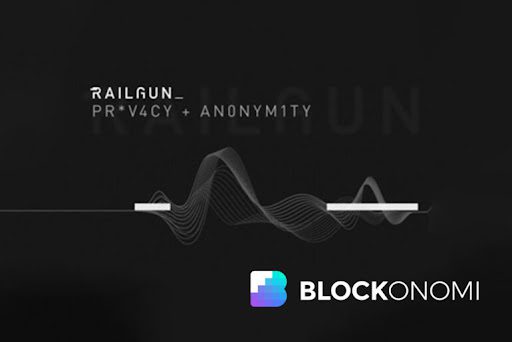Privacy enables a range of use cases not available in circumstances when one is being watched. We behave differently when being surveilled. People will say things differently, self-censor, and will spend money differently if they know they are being watched and their actions recorded. Cryptocurrency privacy is no exception. So, if you had actual privacy in crypto, what would you be able to do? This month’s launch of the Railgun Privacy System has made the hypothetical into a reality, so there has never been a better time for crypto traders to ask this question.
Hide your Portfolio and Trading Strategies
The first way that real cryptocurrency privacy benefits you is that you can execute trades and build your portfolio without anyone knowing. Executing trades anonymously and privately prevents your transactions from getting frontrun. If someone else knows you are about to buy 1000 units of ETH, and can execute a trade faster than you can, then they can benefit from that transaction before you.
A similar vulnerability presents itself if anyone can look into your portfolio and see your balances. Someone can see if you’re accumulating cryptocurrency from an up-and-coming project. Or see that you are unloading tokens from a project you may no longer see as viable. If this information is public, then others can countertrade you, affecting the profitability of your strategy. Anonymization of trades, transactions, and balances helps obscure the decisions you’re making and why you are making them.
On a social level, your portfolio may reveal information about yourself and your identity that you would rather keep private. Your employer, friends, family, or social circle may be able to make judgements about you if they were to learn about your holdings. Crypto privacy is about reserving the right to shield this information from the public, to prevent detrimental or otherwise awkward circumstances from arising.
Donate to causes anonymously
Along the same vein, not everyone is a fan of the limelight. A large donation to a non-profit organization typically attracts attention. Depending on who you are, what you believe in, and the cause you’ve decided to donate to, the kind of attention you receive may be positive or negative. Open-ledger blockchains can make it much more difficult for an anonymous donation to be truly anonymous. Unwanted attention or media coverage is not possible if the donation can be made with complete privacy.
The ability to donate anonymously grants privacy to the donor, and the organization benefits from receiving the funds. This ultimately unlocks money held by individuals who are concerned about the public perception of supporting causes they believe in. Private donations remove the ability to politicize and polarize the donor, with focus remaining on the fact that a particular cause received funds.
Prevent your data from being exploited
Online browsing and spending data is only useful to companies when they can connect it with your identity. So if you transact and browse privately, then you prevent your data from being sold and exploited by advertising agencies. Although targeted advertisements are sometimes helpful and accurate, most of us would still like the ability to opt into or out of receiving them. As it stands, ads consume our attention whether we like it or not. Privacy is about retaining control of what data is shared, when, and to whom.
There is no greater predictor of future spending behavior than what you spent money on in the past. This is why it is extra important to shield the details of your monetary transactions. The privacy gained from using privacy-preserving applications like Railgun can help protect your spending habits from being leveraged by ad companies.
Privacy is the Norm Mainstream financial institutions already operate with a high degree of privacy for their clients. Much of their customers’ information is sequestered in data warehouses and subpoenas are necessary before institutions can be forced to make information public. This is because to one degree or another, the legacy financial system understands the importance of financial privacy from a strategy or business perspective.
As it stands, cryptocurrency tokens and applications all operate on a public ledger such as Ethereum or Bitcoin. Privacy is not built-in unless you’re talking about Monero or zCash, blockchains which do not support smart contracts. So, short of building an entire DeFi ecosystem on separate privacy preserving blockchains, applications like RAILGUN bring privacy to already flourishing cryptocurrency ecosystems like Ethereum. This makes privacy-preserving cryptocurrency services essential infrastructure for allowing public DeFi applications to be used with a layer of privacy.
Read more or join the conversation on the RAILGUN Twitter, Medium and dedicated Telegram Channels:
- https://mobile.twitter.com/railgun_project
- https://medium.com/@Railgun_Project
- https://t.me/railgun_privacy



































